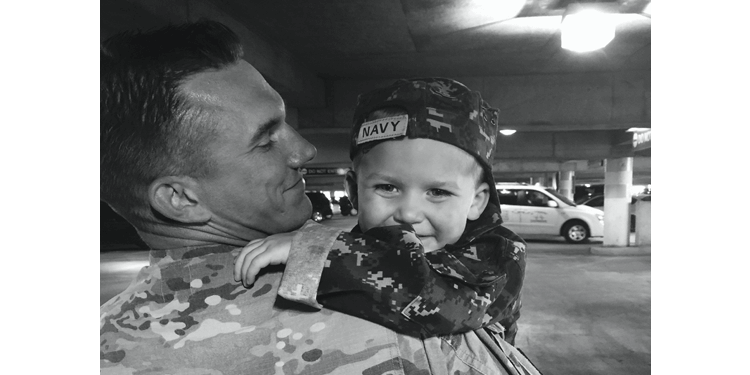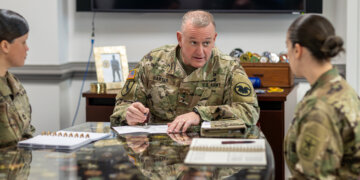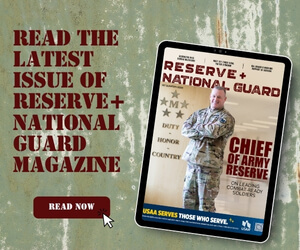There are over 800,000 reservists serving this country. Their role and responsibilities have shifted significantly over the last 20 years, but even more so as a result of the recent COVID-19 pandemic. Navy Reserve Lt. Bryan Bergjans is experiencing it firsthand.
“You have a lot of different stressful situations with your sailors and soldiers in general. They are feeling it from about 45 different directions. It is an extremely challenging time to be a reservist,” he said.
Bergjans explained reservists have responsibilities that vary from active-duty counterparts because typically reservists work full-time civilian careers in addition to military service — a commitment far different from the one weekend a month stereotype.
“Since 9/11, people have developed a huge respect for the reserve force,” Bergjans said.
He added those in the reserves can be deployed at any time, having to leave their civilian careers behind at a moment’s notice, which includes his own experience of getting notified about a deployment to Afghanistan with the Navy.
Bergjans says the days of simply drilling one weekend a month are long gone.
“It’s not part time anymore. Depending on what unit you are in now, the demand is so high and so is the potential for deployment,” Bergjans explained.
Plus, with the recent pandemic, many reservists are being furloughed and even losing their full-time employment completely. Bergjans praised the reserves, saying that they stepped up and found ways to not only support military readiness, but continue to provide income to their reservists.
“They clearly recognized that a big chunk of their force was getting hampered on the civilian side from an income perspective. They were willing to go outside of the box in a telework environment so at least their folks were getting paid,” he said.
Relief organizations from every branch of service committed their support to service members and their families impacted financially due to the virus. Reservists and members of the National Guard were included in the expansion of financial support.
Although many would assume reservists often receive the same level of support, they would be wrong.
“We get stuff trickled down to us,” Bergjans said.
It is why he recommends reservists educate themselves on what is available to support them, including things like benefits, insurance, and financial management.
Bergjans wasn’t even aware he could utilize the VA home loan benefit as a reservist when he and his wife purchased their home in the early 2000’s. His mortgage company was also uneducated about it, despite knowing he was in the military. This past home-buying experience led to his current-day commitment of ensuring service members have access to education on their earned benefits.
Despite having a successful career at Caliber Home Loans as their senior vice president of military lending, Bergjans plans to continue his Navy service as long as possible.
Visit https://www.caliberhomeloans.com to learn more about the company’s commitment to the military along with special assistance for those impacted by COVID-19.
Read comments








































